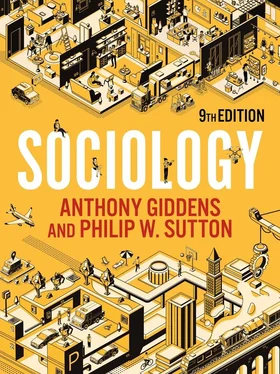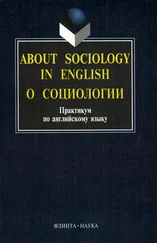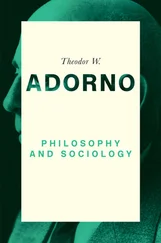The rest of this section will explore some of the main sociological theories linking social development with environmental damage, along with some of the major approaches to solving global environmental problems.
Living in the global ‘risk society’
Humans have always had to face risks of one kind or another, but today’s risks are qualitatively different from those that came in earlier times. Until quite recently, human societies were threatened by external risk – dangers such as drought, earthquakes, famines and storms that spring from the natural world and are unrelated to the actions of humans. Earthquakes and related tsunamis show that external risks of this kind will continue, as planet Earth is characterized by many active, natural processes. However, we are also increasingly confronted by various types of manufactured risk that are created by the impact of our own knowledge and technology on the natural world.
Debates on genetically modified foods and global warming have presented individuals with new choices and challenges in their everyday lives. Because there are no definitive answers as to the consequences of such risks, each individual is forced to make decisions about which risks they are prepared to take. Should we use food and raw materials if their production or consumption has a negative impact on our health and the natural environment? Even seemingly simple decisions about what to eat are made in the context of conflicting information and opinions about the product’s relative merits and drawbacks.
Ulrich Beck (1992, 1999, 2009) wrote extensively about risk and globalization. As technological change progresses more rapidly, producing new forms of risk, we must constantly respond and adjust to the changes. Risks today involve a series of interrelated changes in contemporary social life: shifting employment patterns, heightened job insecurity, the declining influence of tradition and custom on self-identity, the erosion of traditional family patterns and the democratization of personal relationships. Because personal futures are much less fixed than in the past, decisions of all kinds present risks for individuals. Getting married, for example, is a more risky course today than it was when marriage was a lifelong commitment. Decisions about educational qualifications and career paths can also feel risky: it is difficult to predict what skills will be valuable in an economy that changes as rapidly as ours. ‘Classic studies’ 5.1 explores Beck’s arguments, specifically in relation to environmental risks.
Beck’s argument that there is a growing consciousness of manufactured risks, especially those related to society–environment relations, is amply illustrated by the large-scale environmental protests and campaigns of the last decade or so. For example, the rise of Extinction Rebellion and the international school climate strikes have tended to focus on global warming and biodiversity loss, both of which are linked to human activities. Although many environmental campaigns aim to shift government policy, they have also raised the question of the long-term sustainability of the high-consumption lifestyles enjoyed in the Global North. Next, we look at the consumer societies and why changing consumer behaviour may offer a way of raising awareness of and reducing human impact on the environment.
Classic studies 5.1 Ulrich Beck and the global risk society
The research problem
This chapter has explored some of the environmental consequences of industrialization and the increasingly global human footprint. Taking a long-term view, we can see that the spread of industrialization produces more widespread and potentially serious side effects in the form of environmental risks. But is modern life really more risky, or are we just more ‘risk aware’? Are we worrying unnecessarily about environmental problems? The German sociologist Ulrich Beck (1944–2015) has been the foremost sociological theorist of risk, which he understood as much more significant than sociologists previously thought.
Throughout the nineteenth and twentieth centuries, the politics of modern societies was dominated by a major conflict of interest between workers and employers – in Marx’s terms, between the non-owning working class and the propertyowning capitalist class. The conflict centred on issues of wealth distribution as trade unions and labour parties sought a more equal distribution of the socially produced wealth. Such struggles still continue, of course. But Ulrich Beck (1992, 2002, 2009) argues that this distributional conflict is losing its significance as environmental risks rise to prominence. He says that more people are beginning to realize that their fight for a share of the ‘wealth cake’ is futile if the cake itself is being poisoned as a result of pollution and environmental damage (Beck 2002: 128). Beck argues that:
the knowledge is spreading that the sources of wealth are ‘polluted’ by growing ‘hazardous side effects’. This is not at all new, but it has remained unnoticed for a long time in the efforts to overcome poverty…. To put it differently, in the risk society the unknown and unintended consequences come to be a dominant force in history and society. (1992: 20–1)
Industrial societies are slowly dissolving as environmental problems build up; this is an unintended consequence of the rush for economic growth and material prosperity. Beck (1999) argues that we are, in effect, moving into a ‘world risk society’ – a new type of society in which risk consciousness and risk avoidance are becoming central features – because environmental pollution does not respect national boundaries. No matter where industrial production or consumption takes place, its consequences can be felt in very distant locations. The relatively rich countries are not immune from industrial pollution and global environmental damage. We will remain dependent on science and high technology, though, because it is only through these that industrial processes can be safely and effectively managed.
Beck wants to show us that the environmental issue is moving from the margins of political concern towards the centre. Most of the risks we face are the products of human activity; they are not like the purely natural disasters of film and television. This means that the environment becomes an issue for political debate and decision-making, and we can see the creation of environmental organizations and Green political parties in the 1970s as the first step towards inclusion of environmental issues into mainstream politics.
One of the main criticisms of Beck’s overall thesis is that there is not (yet) enough evidence to support his theory of the transition to a ‘risk society’, even though there is today more awareness of environmental risks (Hajer 1996). Similarly, the idea that older forms of class-based politics are losing out to a new politics of risk seems premature. In most countries, Green political parties have not broken through the conventional party system, and globally the issue of wealth creation and distribution still tends to dominate over environmental protection whenever these objectives clash. Finally, it has been argued that the thesis fails to take account of cultural variability in definitions of risk (Douglas 1994; Scott 2000). What is defined as ‘risk’ in some societies may not be so defined in others, in the same way that what is defined as pollution in wealthy industrial societies is often seen as a sign of healthy economic development in poorer developing countries.
Contemporary significance
The concept of risk holds a special place in current sociological debates on environmental issues and the direction of social change. Beck’s risk thesis is useful, because it provides part of an explanation for why environmental movement concerns have found such a receptive audience. Once people become sensitized to risks, the arguments of environmentalists begin to make more sense. Beck’s Risk Society has taken sociological thinking on modernity and its possible futures in a new and highly original direction, making us rethink the sociological tradition, and for this reason it has rightly become a modern classic of social theory.
Читать дальше












